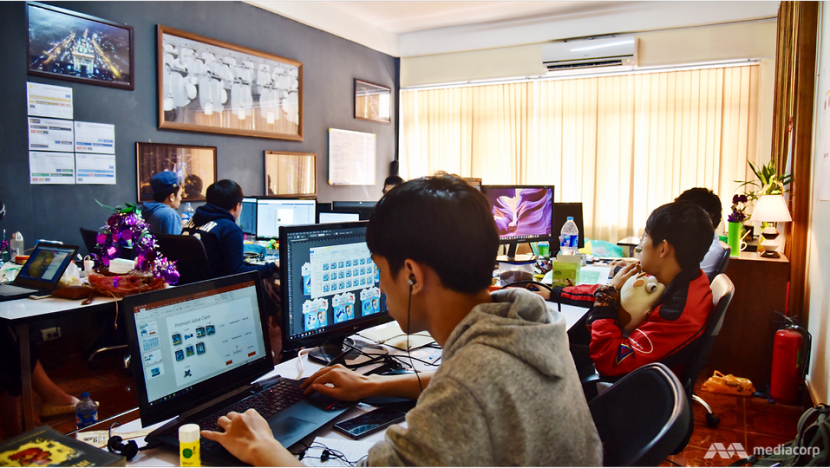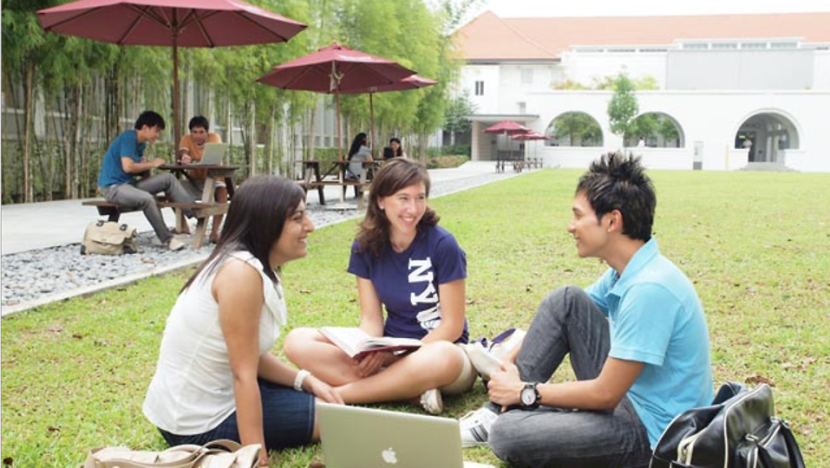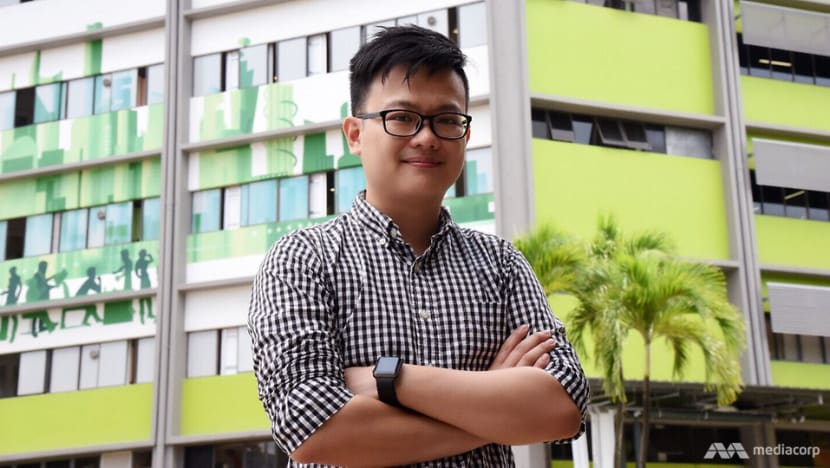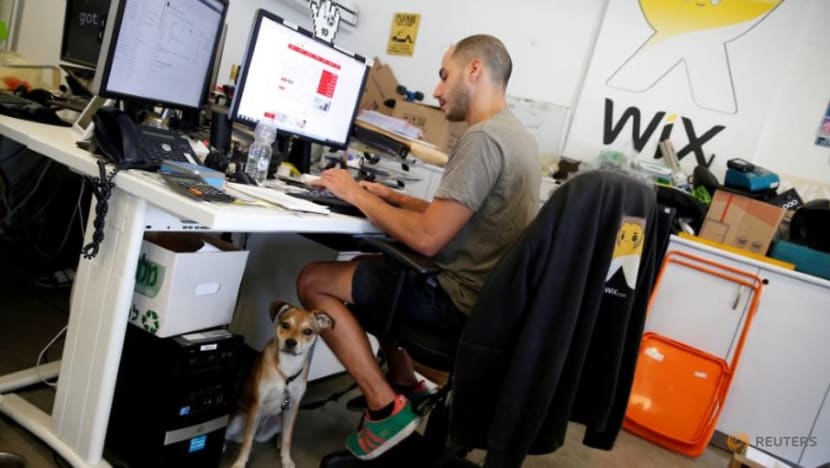commentary Singapore
Commentary: The (not so) secret hack to becoming a successful entrepreneur
Is an overseas start-up experience essential to being an entrepreneur? National University of Singapore’s Francis Yeoh says there’s more than meets the eye.

What does it take to be a successful entrepreneur? (Photo: Jack Board)
SINGAPORE: Transformative. Invaluable. Life-changing.
These are the words used by a growing NOC alumni in describing their overseas stints interning in start-ups in entrepreneurial hotspots around the world such as Silicon Valley, Beijing and Israel.
The NOC, short for NUS Overseas College, is the highly acclaimed internship programme started by NUS over a decade ago to immerse its undergrads into the intense high-energy start-up environment of top start-up regions.
The intent is for them to experience for themselves the thrills and spills of being part of a small team seeking to change the world with new innovations.
In fact, the Global Innovation Alliance programme that came out of the Committee on the Future Economy early last year was largely inspired by the NOC’s success.
More resources have since been made available to scale up NOC-type programmes to establish more permanent linkages with entrepreneurial hotspots overseas.
NUS Enterprise, the innovation arm of NUS, has been quick in setting up Block 71-like offices in Silicon Valley, Jakarta and Suzhou.
GROWING SERIAL ENTREPRENEURS
How much does the NOC and similar overseas internship programmes contribute towards Singapore’s ambition to become an entrepreneurial nation?
Evidence suggests that a sizeable proportion of NOC alumni ends up joining start-ups upon their return compared to the general student population.
Many of the more well-known start-ups that came out of NUS were indeed founded by NOC alumni – Carousell, Shopback and Zopim come to mind.
Alumni from the earlier batches are becoming serial entrepreneurs in the tradition of Silicon Valley start-up founders. Darius Cheung for instance, is now into his third start-up in real estate company 99.co having sold his first company tenCube to McAfee almost a decade ago.

As a professor teaching tech entrepreneurship at the NUS School of Computing for many years, I can certainly see the difference an NOC stint does to students.
Students returning from NOC internships are generally more confident, vocal and tech-savvy. They are able to present their ideas effectively and in more creative ways. They become natural team leaders.
For example, NOC (New York) alumnus Jake Goh, co-founder and CEO of RateX, an e-commerce company providing savings for cross-border purchases, was fully confident and clear about his business model and strategy when he applied to have his start-up housed in the School of Computing’s incubator a year ago.
In that time, he and his founding team built their product, launched the business, attracted paying customers and raised funding.
Not bad for a bunch of students doing all these while studying for their finals.
SELF-SELECTION?
Of course, self-selection plays a large part. Students applying for the NOC programme are likely to be those who are self-driven, adventurous and with an entrepreneurial bent.
But with growing popularity, the pre-requisites for applying to NOC have also risen over the years – students are now encouraged to get letters of support from their professors and have to clear an interview with a panel that looks for students who demonstrate entrepreneurial qualities.
Being far away from home probably plays a part as well. Just as Singaporean students tend to do well when studying abroad, the same drive to prove themselves in a foreign environment may well be true for NOC interns.
I believe however, that the biggest reason why the NOC internship stints have been successful in preparing students to become entrepreneurs is because they immerse the students completely in a very well-developed start-up eco-system.
The NOC sites of Silicon Valley, Beijing and Israel are arguably the top start-up eco-systems in the world.
Therein lies the power of mature eco-systems and start-up communities.

When one is surrounded by huge numbers of smart people with high drive, strong entrepreneurial ambitions and a “can do” attitude, it is difficult to remain unaffected, particularly so when news of fellow start-ups raising venture capital or getting acquired for millions are everyday occurrences.
In such environments where every aspiring start-up founder knows of dozens of his peers achieving some form of success or other, it becomes natural to expect that his turn would surely come.
POWER OF AN ECO-SYSTEM
I recall talking with some Israeli entrepreneurs several years back at a start-up event in Tel Aviv.
Israel, with a population only slightly larger than Singapore’s, is an undisputed global leader in tech entrepreneurship. It has achieved a reputation as the “Start-up Nation”, attracting more venture capital investments and achieving higher start-up exit value per capita than any other country.
When I asked those present what the top career choices are for bright graduating college students, their answers were unequivocal. Everyone wanted to start a company or work in a start-up.
Failing that, the next best option is to work for a high-tech company like Google, Facebook or Intel, which have a strong tech development presence in Israel. And for many, even that was just a stepping stone before going into a start-up.
Working for government comes in almost as a last option, when all else fails. While these views may not be representative of the general population (these were entrepreneurs after all), I suspect the strong start-up preference is not that far off among the young in Israel.

Almost all the aspiring entrepreneurs I spoke to knew of someone – a relative, classmate or neighbour who has done well in a start-up venture and that gave them the inspiration and confidence that they could do so as well. It’s just a matter of time.
Singapore’s intent of strengthening our innovative capability by forging global innovation alliances with leading innovation regions is not a bad strategy. It is consistent with our aspiration to become an entrepreneurial hub.
Indeed, with a highly diversified workforce, advanced infrastructure and high standard of living, we are well-placed to be a hub for start-ups in Southeast Asia that can attract venture capitalists, entrepreneurs, technical talent and support service players.
This plays to Singapore’s strengths - the quality, abundance and flow of talent will greatly enrich, invigorate and reinforce our eco-system in a virtuous cycle.
As we mature as an entrepreneurial hub, internships in start-ups overseas via NOC-type programmes will become less of a means for us to merely learn from others and more of a global multi-directional exchange programme.
The real indication that we have become successful as an entrepreneurial hub is when other countries begin to send their students to intern in Singapore-based start-ups.
It is then that we know we have built up a healthy and sustainable entrepreneurial eco-system.
Dr Francis Yeoh is Professor for Entrepreneurship at the NUS School of Computing, as well as executive director of the Mediapreneur, Mediacorp's incubator programme.













